A Comprehensive Guide on How to Buy Bitcoin?!

Are you looking to join the bitcoin frenzy and buy your first bitcoin? Then, you are in the right place. This article is a comprehensive guide on everything you need to know to have your first experience as a bitcoin owner. To make this process easy, this beginner’s guide to buying bitcoin explores a simple step-by-step procedure that ensures safety.
But first, let’s take you through some information you need to know before buying bitcoin.
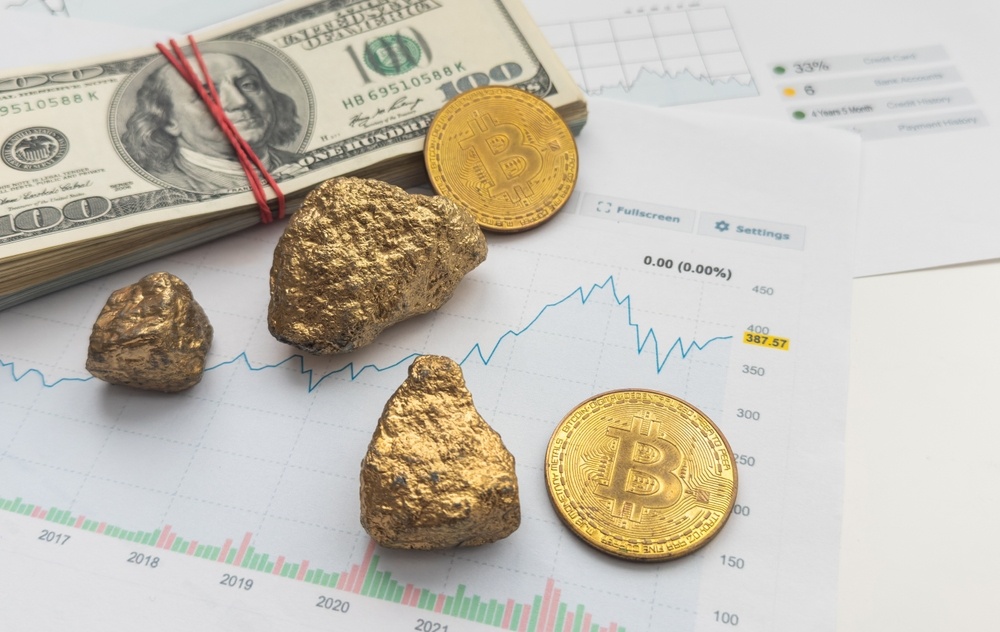
Understanding Bitcoin Basics
Before we get started on buying Bitcoin, it’s helpful to understand what exactly Bitcoin is and how it operates. Trust me, I know how confusing all the technical jargon can be, but let’s break it down together in simple terms.
What Is Bitcoin?
Bitcoin is a form of digital money that exists solely online. Unlike traditional currencies, it’s decentralized, meaning there’s no central authority like a bank or government controlling it. This means you can send and receive Bitcoin directly with other people, no middlemen involved.
Think of it as the internet’s version of cash. If you’ve ever used email to send a message, imagine sending money the same way. It’s that straightforward.
How Does Bitcoin Work?
Bitcoin runs on something called blockchain technology. Now, I know “blockchain” might sound like a complicated term, but it’s basically a digital ledger that records every Bitcoin transaction ever made. This ledger is public and transparent, so everyone can see it, but it’s also secure and tamper-proof.
Every time you send or receive Bitcoin, that transaction is added to the blockchain. This ensures that the same Bitcoin isn’t spent twice, and it keeps the network honest.
Why Invest in Bitcoin?
You might be wondering, “Why should I consider investing in Bitcoin?” Well, there are several reasons people find Bitcoin attractive:
- Potential for Growth: Bitcoin has seen significant price increases over the years. For example, if you had invested just $100 in Bitcoin back in 2010, you’d be a millionaire today. While past performance doesn’t guarantee future results, many believe Bitcoin still has room to grow.
- Diversification: Adding Bitcoin to your investment portfolio can diversify your assets. It’s a different kind of investment compared to stocks or real estate, which can help spread risk.
- Innovative Technology: By investing in Bitcoin, you’re participating in a technological revolution. Blockchain technology is being adopted in various industries beyond finance, and being part of this movement can be exciting.
As the legendary investor Warren Buffett once said,
“Be fearful when others are greedy, and greedy when others are fearful.”
While he wasn’t talking about Bitcoin specifically, it’s a reminder that sometimes stepping into new territories can offer unique opportunities.
Understanding these basics is the first step on your Bitcoin journey. Now that we’ve unpacked what Bitcoin is and why it might be worth considering, you’re probably eager to know how to actually get your hands on some. But wait, how do you choose the right platform to buy Bitcoin?
What things You Must Know Before Buying Bitcoin?
Bitcoin Is Volatile
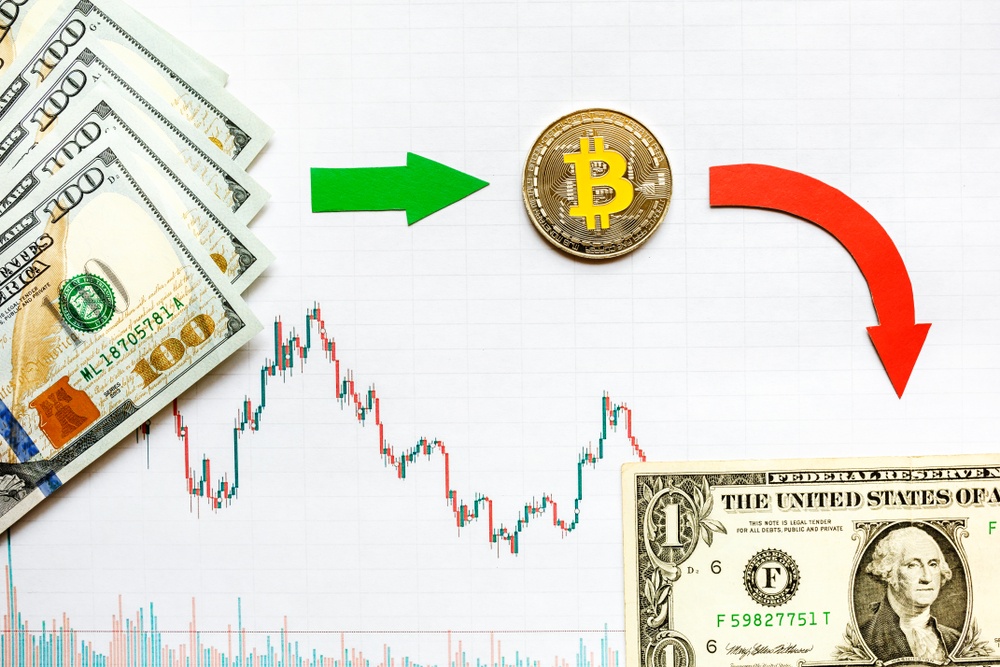
Bitcoin is unlike any traditional asset you are used to. This assertion holds because it exhibits extreme volatility that causes its price to fluctuate several times a day. As expected, its propensity to hit price swings regularly has made it the go-to asset for investors who are interested in making profits off short-term trades. If you fall into this category, you should consider the present price of bitcoin before buying the digital asset. You do not want to buy at a price that will hurt your chances of making a meaningful profit.
On the other hand, if the long-term strategy is your game plan, or you finally see the truth in the financial freedom that bitcoin avails, then the present price might not matter.
Is Bitcoin Legal in Your Location?
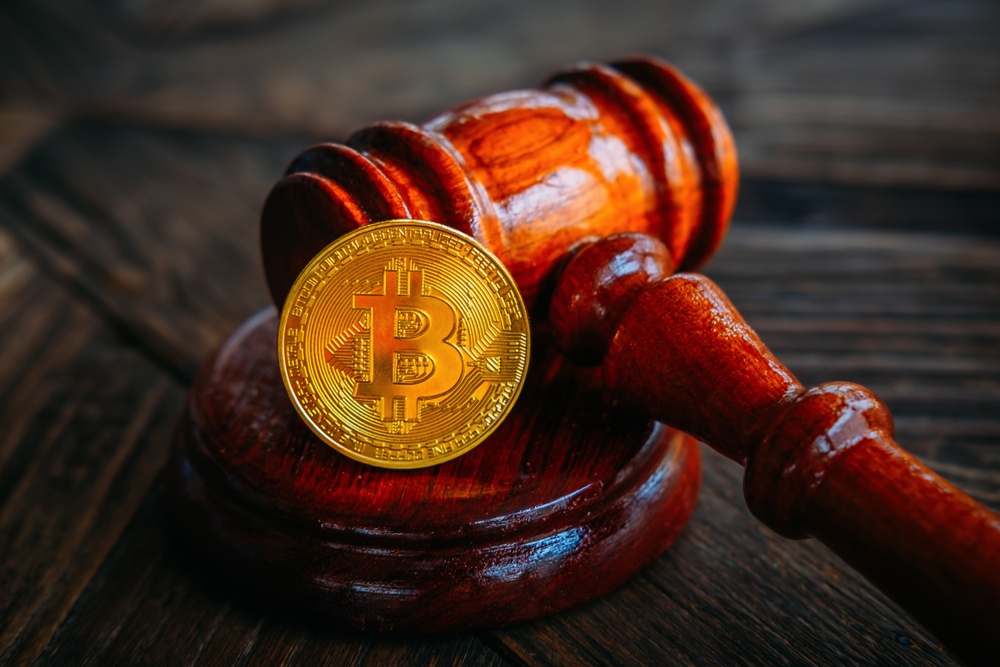
Unfortunately, owning bitcoin is illegal in some countries. Therefore, you should check its legal standing in your location before going all out to purchase it.
Is Bitcoin Taxable?
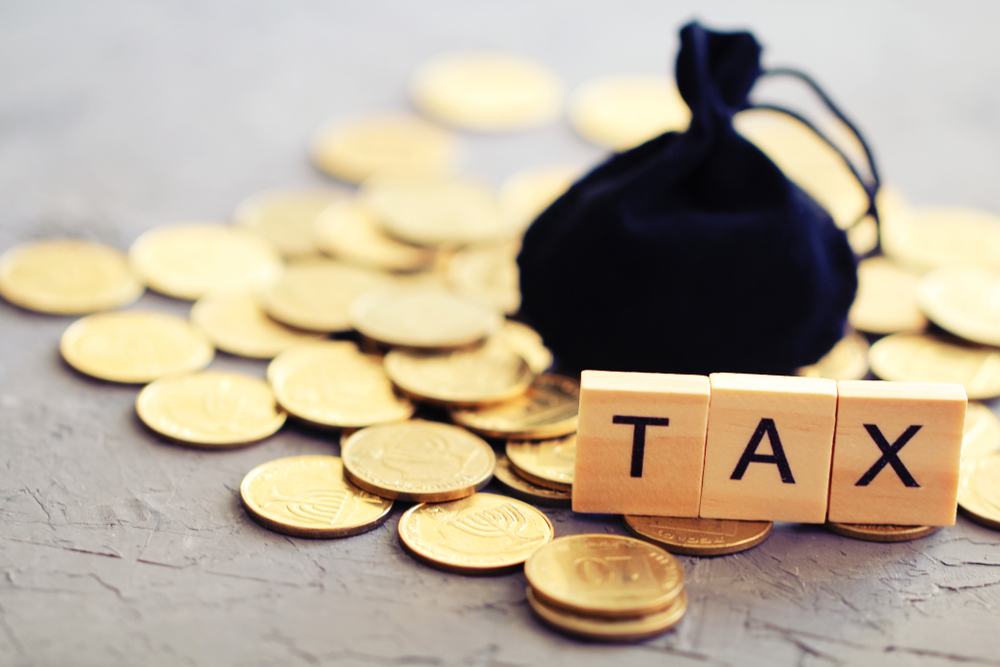
It is important to have it at the back of your mind that every profit made from bitcoin activities is taxable. Depending on your location, you might need to identify the tax law governing bitcoin and ensure that your activities are recorded to fulfill your obligations. Better still, you could get help from a tax expert who could enlighten you on the entire process.
Bitcoin Does Not Provide Anonymity
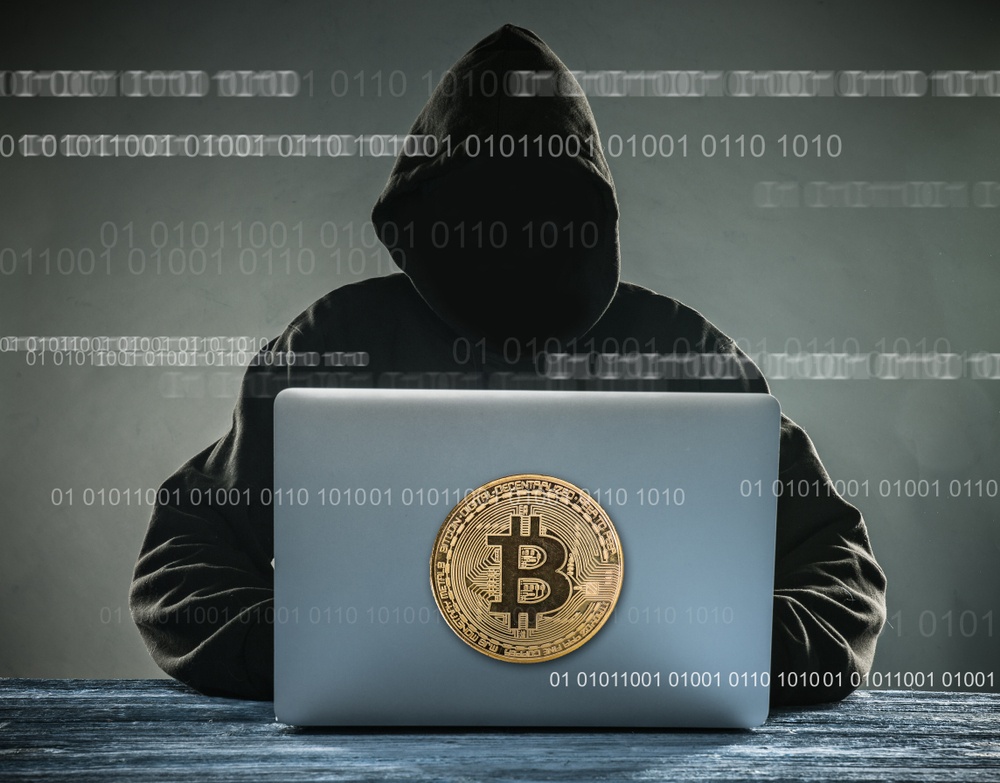
One of the most popular misconceptions about bitcoin is that it offers anonymity to users. In its true sense, bitcoin only provides limited privacy. It utilizes blockchain technology to ensure that all the transactions recorded on its ledger are immutable. Also, each user owns an address that features on transaction details. Hence, it is possible to trace the activities of an address.
More importantly, an individual loses any shred of anonymity that bitcoin provides, once his/her identity is linked to the address.
KYC And AML Are Criteria
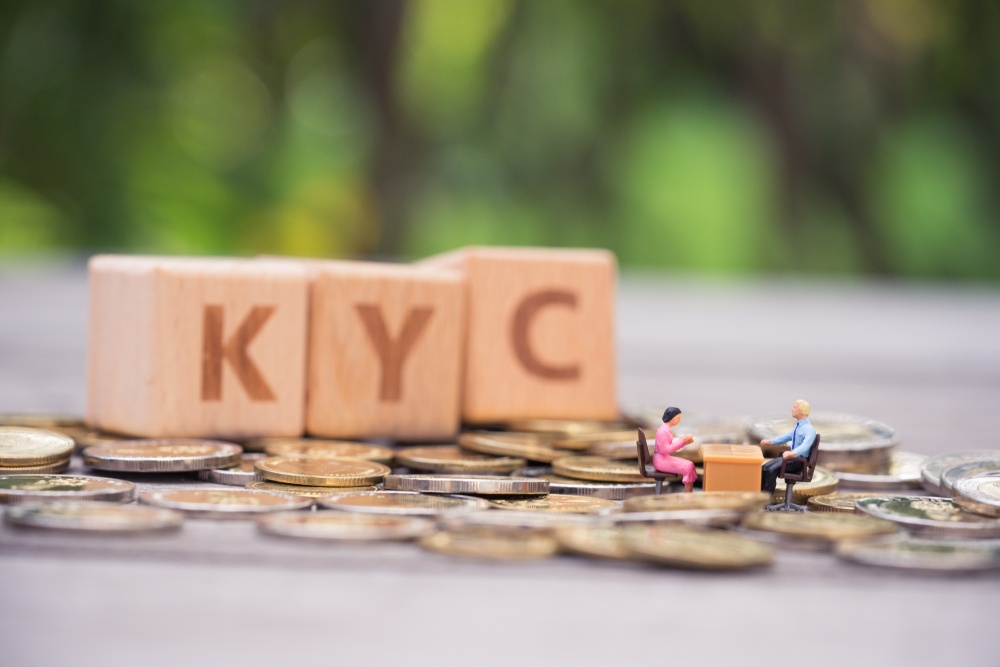
Know your customer practice has become a criterion for people looking to purchase bitcoin from licensed platforms. These platforms use this process to authenticate the identities of buyers to remain compliant with regulations and to reduce the risks that come with exchanging bitcoins for fiat currencies. More often than not, this procedure entails anti-money laundering requirements to ensure that transactions are legal.
Now that you have a little insight on some issues relating to the purchase of bitcoin, the next section will kick off your bitcoin experience.
Why Buying Bitcoin Can Feel Overwhelming
If you’re feeling a bit lost, trust me, I’ve been there. The world of cryptocurrency is full of new terms and concepts that can make anyone’s head spin. Let’s look at some common hurdles that beginners face.
The first time I visited a cryptocurrency exchange, I was greeted with flashing numbers, candlestick charts, and jargon I didn’t understand. It felt like stepping into a high-tech trading room! Many crypto exchanges have interfaces designed for experienced traders, which can be intimidating for newcomers.
It’s like walking into a gym for the first time and seeing all these complicated machines—where do you even start? This complexity can make the process of buying Bitcoin seem much harder than it actually is.
Concerns About Security and Scams
You’ve probably heard stories about people losing their Bitcoin or falling victim to scams. I remember reading about exchange hacks and feeling uneasy about trusting these platforms with my money.
Security is a valid concern. The fear of losing your hard-earned cash to a scammer can definitely make you think twice. It’s important to be cautious, but these fears shouldn’t hold you back from exploring the world of Bitcoin.
Understanding the Technical Jargon
“Blockchain,” “wallets,” “private keys”—these terms might sound like something out of a sci-fi movie. When I started, I felt like I needed a degree in computer science just to make sense of it all.
This technical jargon can be a major obstacle. Without someone to break down these concepts in plain language, it’s easy to feel discouraged. But here’s the good news: you don’t need to be a tech wizard to buy Bitcoin.
Feeling a bit more at ease? Don’t worry, I’ll explain everything you need to know in simple terms. Curious about what Bitcoin actually is and how it works? Let’s dive into that next!
Where to Access Bitcoin?
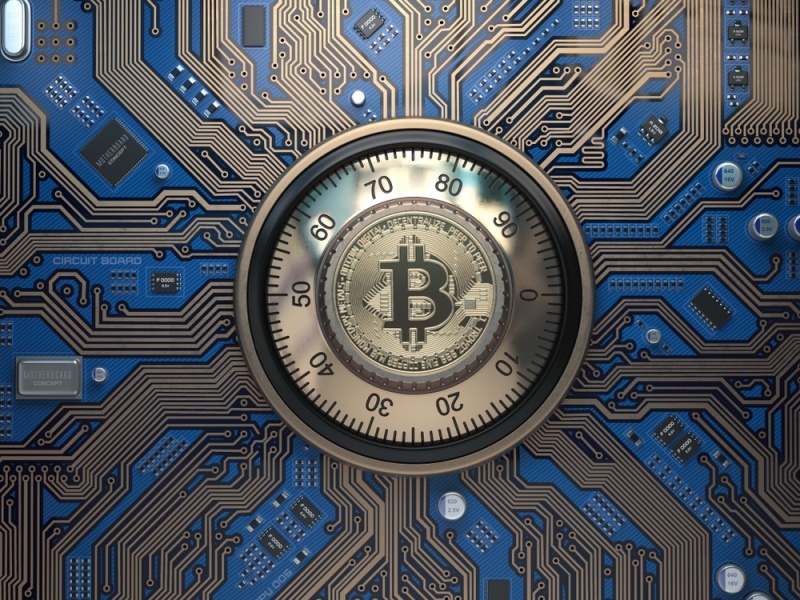
You can access bitcoin in a myriad of ways. Some are tedious, while others are quite easy. For this guide, we will try as much as possible to cover all the major methods of buying bitcoin and leave you to decide for yourself the one that best suits you. However, before choosing, you should consider the following factors.
Your Location: Most new entrants rely on exchanges for their first bitcoin purchase. That said, the current regulatory landscape of the crypto economy does not permit some exchanges to operate in certain regions. Therefore, it is your responsibility to ascertain whether the platform you are looking to patronize has the license to sell to people from your location.
Payment Method: Your payment method will, to an extent, determine the right platform for you to access bitcoin. Is it cash you have got, or are you willing to use a credit or debit card? Whichever you choose, you should pick exchanges or buyers based on the payment mode you are willing to utilize. In most cases, exchanges offer one or more payment options to make the process a lot easier. It is worth mentioning that your payment method would determine, to an extent, the exchange rate you access. In most cases, payment options that allow chargebacks carry higher transaction fees, and they are not easily accessible. In other words, platforms offering Mastercard, PayPal, or Visa are scarce. The few that do would enforce strict KYC procedures and offer bitcoin at a premium price.
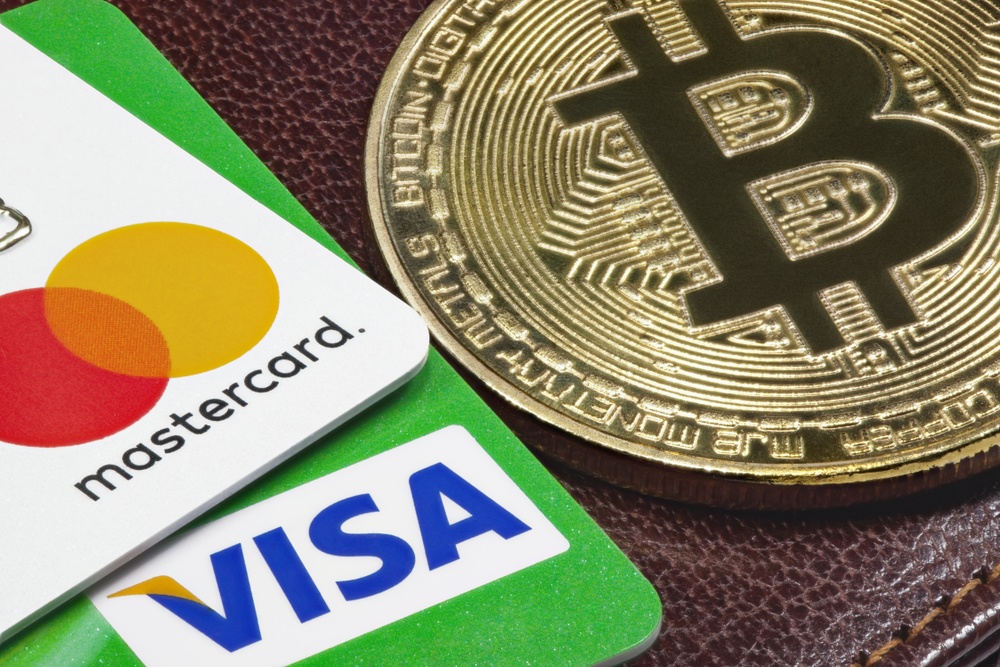
As an alternative, you could opt for wired transfer, as it is quite popular with exchanges, and the cost of processing such transactions is low. This is because wired transfer does not support chargebacks. Also, you might need to consider the amount of bitcoin you are looking to buy when choosing an exchange. Some exchanges have limits and would not process your request once you exceed these limits.
You could as well buy bitcoins with cash by utilizing platforms that link buyers and sellers to transact physically. Nonetheless, this type of transaction is inadvisable, as it exposes both the buyer and the seller to risks.
The Transaction Charges: It is imperative to separate exchange rates from transaction charges when buying bitcoin. Some exchanges claim that their transaction fee is negligible compared to other platforms, but offer marginally high exchange rates. As such, you should ensure that you go for platforms that offer reasonable deals.
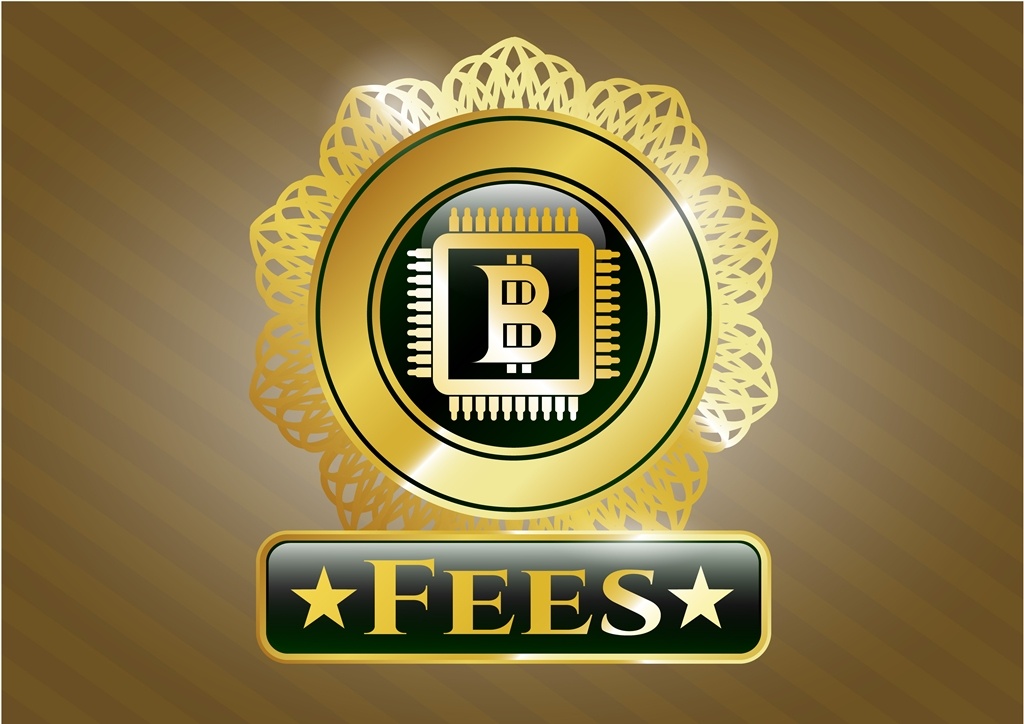
The Platform’s Reputation: Although searching for premium deals is the ideal thing to do, however, you should not let it sway you from utilizing a reputable exchange. Ensure that the platform you eventually adopt has shown that it is capable of offering quality services. Note that there are no exchanges with perfect reviews, nonetheless, you can gauge the credibility of a platform by weighing its pros against its downsides.
The Type of Platform: Different types of exchanges facilitate the buying and selling of bitcoin. We have trading platforms, P2P networks, and brokers. While the distinctions between these platforms might seem inconspicuous at first, a closer look, on the other hand, reveals the difference. Trading platforms are intermediaries between buyers and sellers, and they charge fees on each transaction. The drawback here is that many trading platforms are not beginner-friendly. Also, it may require that you wait till you find a seller who is willing to sell bitcoin at your specified price before you get to access bitcoin. Two platforms that fall under this category are Kraken and Bitstamp.
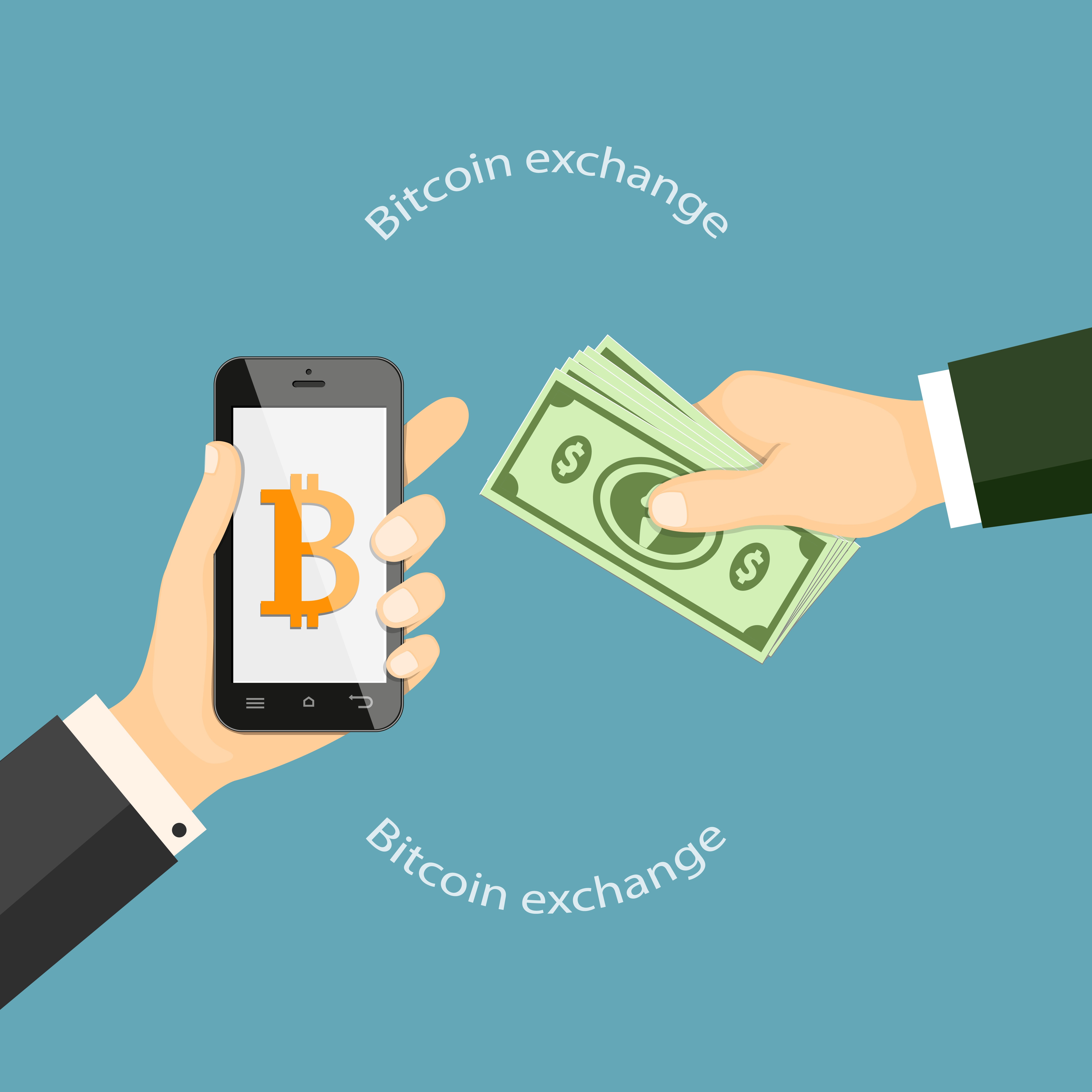
Unlike trading platforms, P2P exchanges enable an ecosystem where buyers and sellers can communicate directly and effect trades without the middleman factor. Alternatively, you could choose to use a broker, which typically offers users bitcoin at a fixed price. Although it costs more to use a broker, nevertheless, their simple business structure and ease-of-use make them the most popular choice for beginners. Some of the most commonly used brokers operating in the crypto market are Coinbase and Coinmama.
Now that we have examined important factors to consider when choosing a bitcoin exchange, the next step is to select a bitcoin wallet.
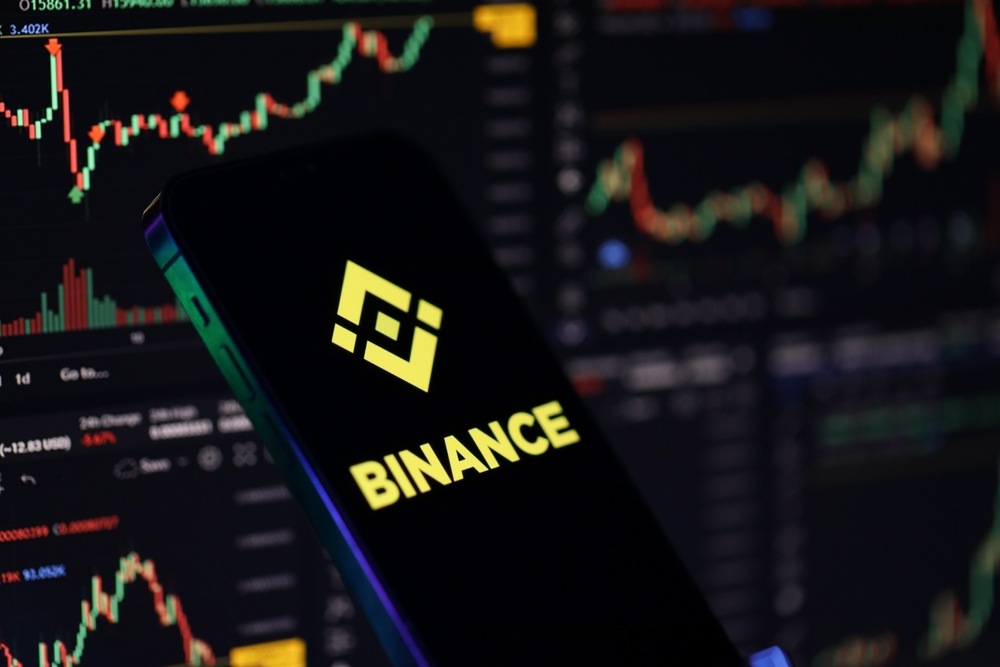
Choosing a Cryptocurrency Exchange or Trading Platform
Navigating the world of cryptocurrency exchanges can feel like stepping into a bustling marketplace for the first time. With so many options, it’s essential to choose a platform that fits your needs and sets you up for a smooth Bitcoin buying experience.
Factors to Consider
When I’m selecting a platform, I pay close attention to several key factors:
- Security Features: Protecting your investment is paramount. Look for exchanges that offer two-factor authentication, encryption, and cold storage options.
- Fees: Be mindful of trading fees, deposit and withdrawal charges, and any hidden costs that could eat into your funds.
- User Experience: A user-friendly interface can make a world of difference, especially if you’re new to cryptocurrency trading.
- Customer Support: Responsive and helpful support teams can save you headaches down the line.
Recommended Platforms for Beginners
Starting out, it’s helpful to choose platforms known for their ease of use and reliability. Here are a few I often recommend:
- Coinbase: Widely regarded for its intuitive interface and robust security measures, making it ideal for newcomers.
- Kraken: Offers a good balance of simplicity and advanced features as you become more comfortable.
- Binance: Known for low fees and a wide variety of cryptocurrencies, perfect as you expand your portfolio.
Registration Requirements
Most platforms require some personal information to comply with regulations and ensure security:
- Personal Information: You’ll typically need to provide your full name, email address, and phone number.
- Identity Verification: This may involve uploading a copy of your ID and a proof of address document.
- Security Setup: Setting up two-factor authentication enhances your account’s protection.
I know providing such personal details can feel a bit intrusive, but these measures help keep the platform secure for everyone.
“The secret of getting ahead is getting started.” – Mark Twain
Choosing the right exchange is a significant first step in your Bitcoin journey. It’s normal to feel a bit overwhelmed, but remember—every expert was once a beginner. Finding a platform that you trust and feel comfortable with will make the rest of the process much smoother.
Curious about how to set up your account and get verified quickly? Let’s dive into that next!

Creating Your Account and Completing Verification
Ready to start your Bitcoin journey? Let’s get you set up with an account so you can dive into trading. Don’t worry—I’m here to walk you through each step.
Signing Up
The first step is choosing your preferred cryptocurrency exchange or trading platform. Once you’ve made your choice, head over to their website and look for the “Sign Up” or “Register” button. You’ll need to provide your email address and create a strong, unique password. Remember, this password protects your investments, so make it a good one!
Identity Verification (KYC)
After signing up, you’ll likely be prompted to verify your identity. This process is known as Know Your Customer (KYC) and is required by most reputable platforms. You’ll need to submit some documents, typically:
- A government-issued ID (like a passport or driver’s license)
- Proof of address (such as a utility bill or bank statement)
I know it might seem like a hassle, but this step is crucial for security and compliance purposes. It helps prevent fraud and ensures a safer environment for all users.
Enhancing Security
Now that your identity is verified, let’s make sure your account is as secure as possible. One of the best ways to do this is by enabling two-factor authentication (2FA). This adds an extra layer of security by requiring a second form of verification when logging in or making transactions.
Here’s how you can set it up:
- Download an authentication app like Google Authenticator or Authy on your smartphone.
- Go to your account settings on the trading platform and find the 2FA option.
- Scan the QR code provided using your authentication app.
- Enter the verification code from the app to confirm setup.
By taking this step, you’re significantly reducing the risk of unauthorized access to your account.
“The best investment you can make is in yourself and your security.” – Anonymous
You’ve successfully set up and secured your account! It’s a big step forward, and you should feel proud of making it this far.
But what’s next? How do you get funds into your account so you can finally buy that Bitcoin you’ve been eyeing? Don’t worry—that’s exactly what we’ll cover in the upcoming section. Trust me, it’s easier than you might think, and I’m excited to guide you through it!
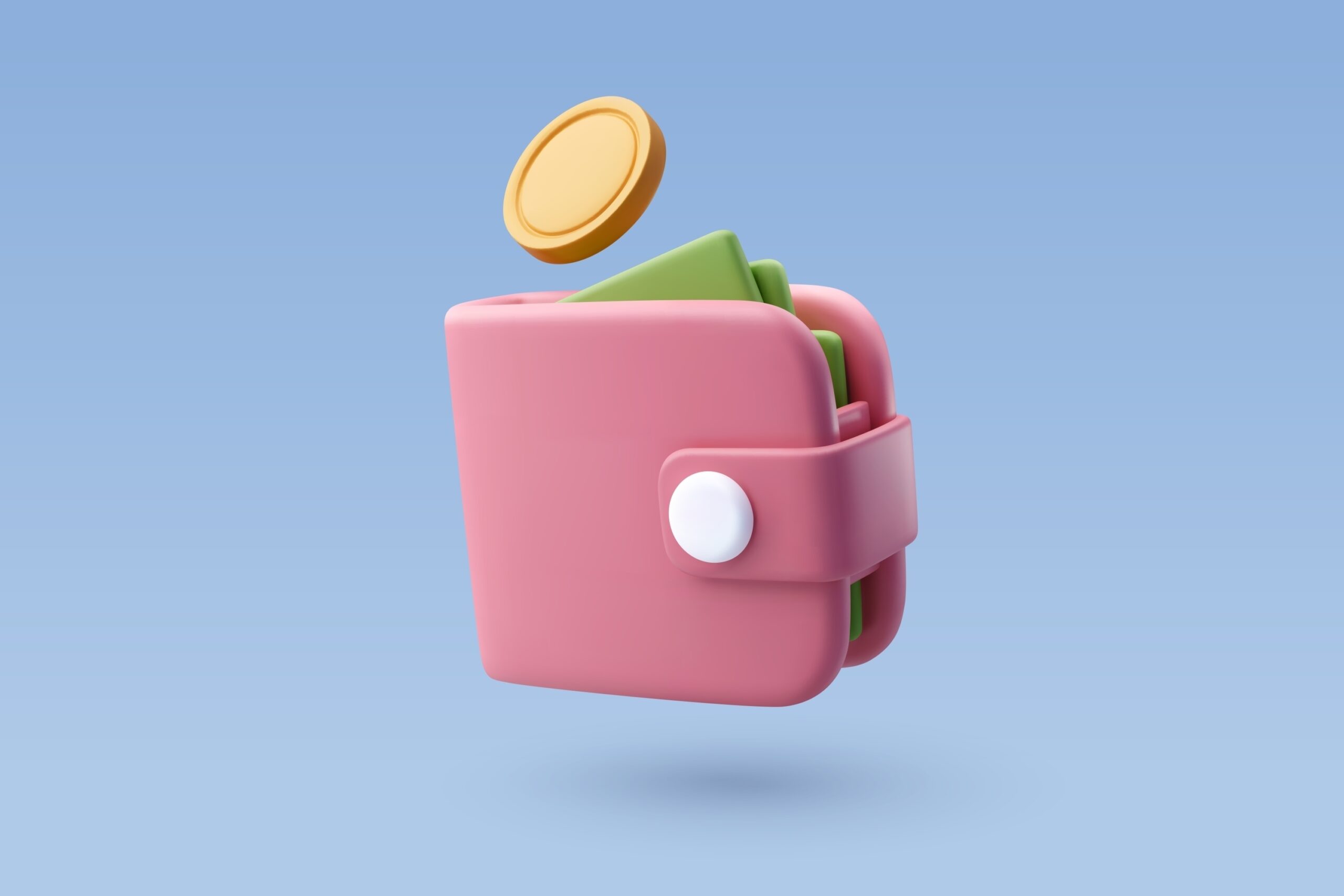
Funding Your Account
So, you’ve set up your account and completed the verification steps—awesome! Now comes the moment we’ve been waiting for: funding your account so you can finally purchase some Bitcoin. I remember the excitement (and a bit of nervousness) when I did this for the first time, but trust me, it’s pretty straightforward.
Linking Your Bank Account or Card
The first step is to connect a payment method to your cryptocurrency exchange account. Here’s how you can do it:
- Bank Account: Linking your bank account allows you to transfer funds directly. This method is generally preferred for larger amounts due to lower fees.
- Credit/Debit Card: Using a card is quick and convenient for smaller purchases. It’s perfect if you want to get started immediately.
To link your payment method, head over to the “Settings” or “Payment Methods” section of your exchange account. Follow the prompts to securely add your bank details or card information. Most exchanges use encryption to protect your financial data, so you can feel safe during this process.
Understanding Fees and Limits
Before you make a deposit, it’s important to be aware of any fees and limits associated with your chosen payment method:
- Transaction Fees: Exchanges often charge a fee for depositing funds. For example, bank transfers might have minimal fees, while credit card deposits could incur higher charges (sometimes around 2-3%).
- Deposit Limits: There may be daily, weekly, or monthly limits on how much you can deposit, especially if your account is new or not fully verified.
Understanding these factors can help you plan your investment better. No one likes unexpected fees! I once tried to deposit a larger amount using my debit card and was surprised by the fees. After a bit of research, I switched to bank transfers for better rates.
Processing Time
Processing times can vary depending on the deposit method you choose:
- Bank Transfers: These can take anywhere from one to five business days to reflect in your account. It’s a bit of a wait, but often worth it for the lower fees.
- Credit/Debit Cards: Deposits are usually instant, which means you can buy Bitcoin right away. Keep in mind the trade-off with higher fees.
As the saying goes, “Good things come to those who wait.” But if you’re eager to jump in, using a card is a fast alternative.
Now that your account is funded, you’re one step closer to owning Bitcoin. But how do you actually make the purchase? What options do you have, and what’s the smartest way to proceed? Let’s get ready to explore that next!
Placing a Buy Order for Bitcoin
Now that your account is funded, it’s time for the exciting part—actually buying Bitcoin! I’ll walk you through the steps to place your first buy order confidently.
Choosing the Right Order Type
First things first, you need to decide how you want to buy your Bitcoin. There are two main order types to consider:
- Market Order: This means you’re buying Bitcoin at the current market price. It’s straightforward and quick—perfect for beginners.
- Limit Order: With a limit order, you set the price you’re willing to pay. Your order will only execute if the market reaches your specified price.
If you’re eager to get started and don’t want to wait, a market order is usually the way to go. On the other hand, if you’re targeting a specific price point, a limit order might be more suitable.
Entering the Amount
Next, decide how much you want to invest. You can choose to buy a specific amount of Bitcoin (like 0.01 BTC) or spend a certain amount of your local currency (like $100).
Remember, you don’t have to buy a whole Bitcoin! Bitcoin is divisible up to eight decimal places, so you can start investing with any amount that feels comfortable to you.
Confirming the Purchase
Before finalizing the transaction, take a moment to review all the details:
- Order Type: Ensure you’ve selected the correct type (market or limit).
- Amount: Double-check the amount of Bitcoin or the currency amount you’re spending.
- Fees: Be aware of any transaction fees that will be applied.
As they say, “Measure twice, cut once.” Confirming these details helps prevent any surprises later. Once you’re satisfied, go ahead and click the “Buy” button!
And that’s it—you’ve purchased Bitcoin! It’s a thrilling moment the first time you see that Bitcoin balance in your account. But you might be wondering, what’s the best way to keep it safe?
How to Choose A Bitcoin Wallet?
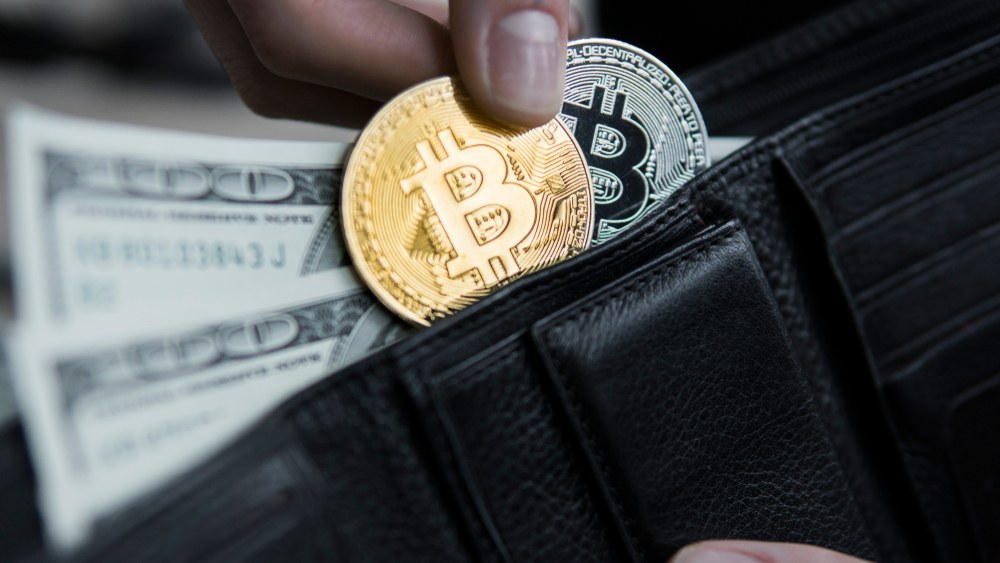
Wallets are tools or platforms that help crypto holders manage their coins. Simply put, they help secure cryptocurrency just as an email account would secure your mails. The same way an email account utilizes an address and password for its operations, a wallet issues a public key and a private key to the user immediately it is activated.
The public key functions like your email address and the private key is your password. Your wallet has become vulnerable, once the security of the private key is compromised. Unfortunately, there is no password retrieval process for wallets, as a lost private key renders the asset stored in the wallet irretrievable. While this analogy is not the most convincing, it does paint a relatable picture of what a wallet does.
A wallet could be universal – support several cryptocurrencies – or specially made for a coin. However, since bitcoin is one of the most popular cryptocurrencies in the market, the options are limitless. This brings us to the frequently asked question: which bitcoin wallet should I choose?
Note that each class of wallet comes with its downside. For this article, we will discuss three classes of bitcoin wallets – custodial wallets, non-custodial wallets, and multi-user wallets.
Custodial Wallets: Custodial wallets or third-party wallets are platforms that hold assets on behalf of their users. As its name implies, users would have to hand over their assets to these entities. On the upside, utilizing a custodial wallet is suitable for active investors in the crypto market, as the wallet is always online. On the downside, this type of wallet is prone to hacks and exit scams – a situation whereby the platform closes shop and carts away with users’ assets.
Non-Custodial Wallets: These are offline tools or hardware wallets that offer users full autonomy over their assets. Since you are responsible for the security of your asset, you cannot hold the companies offering these tools liable for breaches resulting from a compromised private key. Also, holding your assets offline could prove ineffective for active market participants.
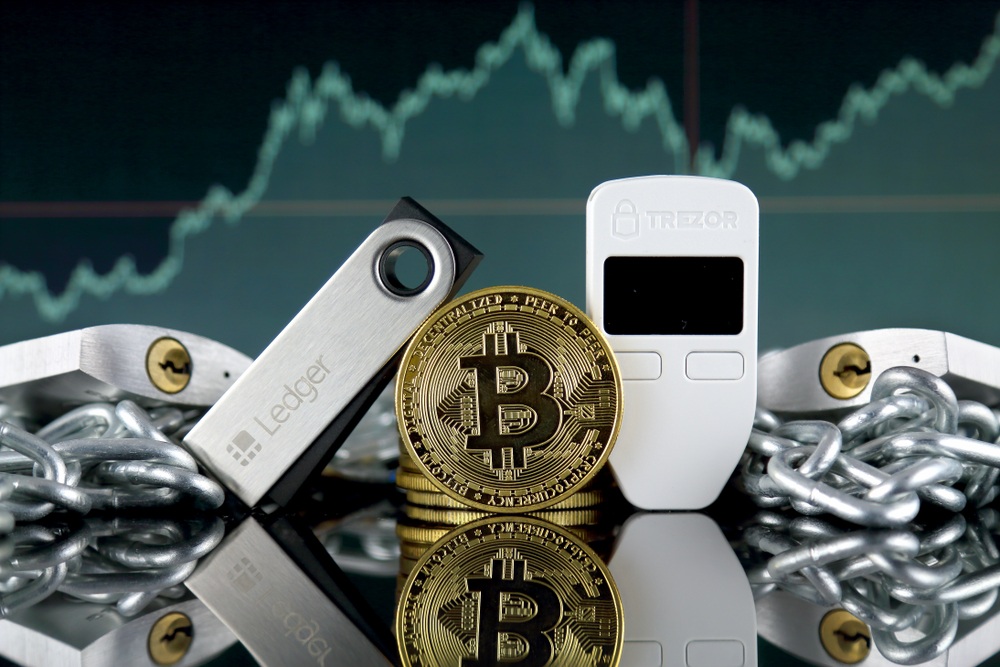
Multi-User Wallets: With this, you can activate a multisig function that splits the private key between two or more individuals. In other words, when you operate a multi-user wallet, you would need the inputs of other authorized owners of the wallets before accessing the bitcoin held on the wallets.
Having understood the unique concept that defines each class of wallet, it is advisable to set a custodial wallet as a temporal wallet, while the non-custodial one should hold the bulk of your crypto asset. This way, you get to do your daily transactions without the need to expose your hardware wallet to nefarious entities lurking the internet. This assertion is even more vital for people that are planning to buy a lot of bitcoin.
Storing Your Bitcoin Safely
Now that you’ve taken the exciting step of buying Bitcoin, the next crucial move is ensuring it’s stored securely. Just like you wouldn’t leave your wallet laying around, your digital assets need protection too.
“Not your keys, not your coins.”
This saying resonates deeply in the crypto world. It reminds me that owning Bitcoin isn’t just about buying it—it’s about securing it.
Understanding Wallets
A Bitcoin wallet is your personal gateway to the crypto universe. It’s a digital tool that allows you to send, receive, and store Bitcoin. But unlike a traditional wallet, it doesn’t hold physical coins. Instead, it keeps the private keys—secret codes that give you access to your Bitcoin.
Types of Wallets
Choosing the right wallet depends on how you plan to use your Bitcoin:
- Hot Wallets (Online): These wallets are connected to the internet. They’re usually apps or web-based platforms that offer quick access to your Bitcoin. They’re convenient for everyday transactions but can be vulnerable to online attacks.
- Cold Wallets (Offline): These are physical devices or even paper documents that store your private keys offline. Examples include hardware wallets like Ledger or Trezor. They’re considered the safest option since they’re immune to online hacking attempts.
Personally, I started with a hot wallet to get familiar with the process, then moved to a cold wallet for long-term storage.
Setting Up a Wallet
Setting up your own wallet might sound technical, but it’s quite straightforward:
- Select a Wallet: Decide whether a hot or cold wallet suits your needs. For beginners, a reputable hot wallet like Exodus or Electrum is user-friendly.
- Download and Install: Go to the official website or app store to download your chosen wallet. Always double-check URLs to avoid phishing sites.
- Create a New Wallet: Open the app and follow the instructions to create a new wallet. You’ll be given a seed phrase—a series of words. Write this down on paper and keep it somewhere safe. This is your backup if you ever lose access to your wallet.
- Secure Your Wallet: Set a strong password and enable two-factor authentication (2FA) if available.
- Transfer Your Bitcoin: Use the wallet’s receiving address to transfer your Bitcoin from the exchange. Double-check the address before sending.
A quick tip: never share your private keys or seed phrase with anyone. Scammers often try to trick users into revealing this information.
According to a report by CipherTrace, crypto thefts and frauds amounted to over $1.9 billion in 2020. That’s a staggering number, but many of these incidents could have been prevented with proper wallet security.
Securing your Bitcoin gives you peace of mind. It’s an empowering feeling, knowing that you have full control over your assets.
Feeling a bit more confident about safeguarding your Bitcoin? Great! But there’s always more to learn on this journey. Ever wondered how to make the most of your investment right from the start? I’ve got some personal tips up next that you won’t want to miss!
How Much Bitcoin Can I Buy?
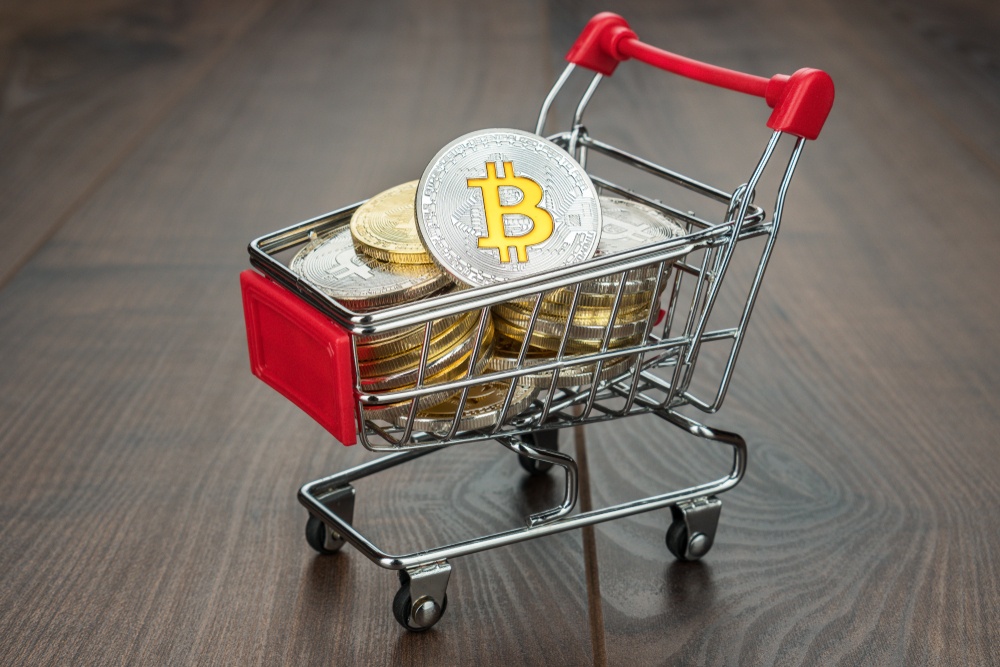
There are no limits as to how much bitcoin you can buy, except for the ones enacted on exchanges. For those that are looking to buy a large amount of bitcoin, some exchanges specialize in such volume of transactions. Furthermore, the lowest amount of bitcoin that you can buy is 1 Satoshi, which is equivalent to 0.00000001 Bitcoin. According to the current price of bitcoin, that is $0.00085 in fiat currency.
How to Buy Bitcoin on Exchanges?
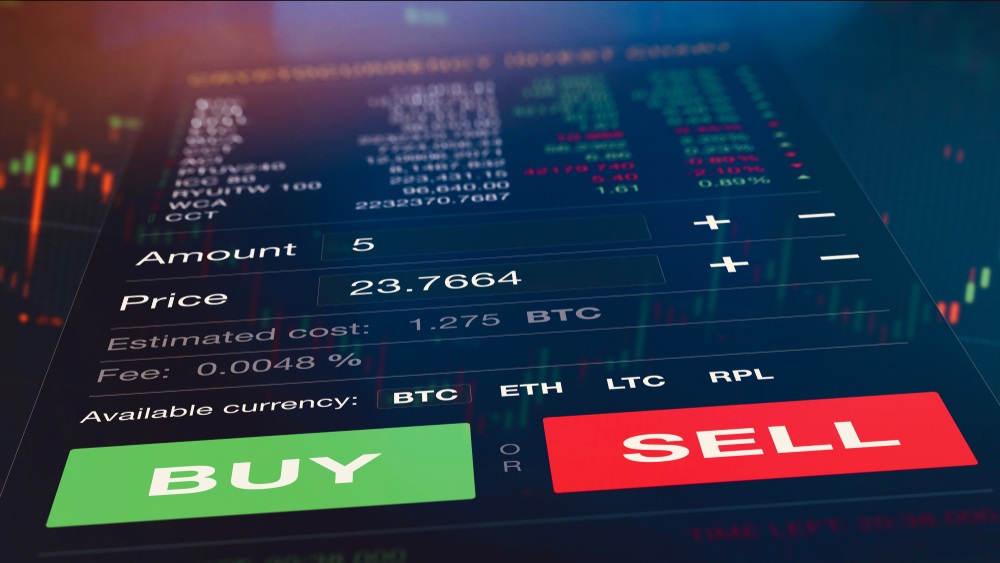
Once you have picked a wallet, chosen an exchange, and determined the amount of bitcoin you want to buy, the next thing is to meet the registration requirements of the exchange. Note that this information is only valid for individuals that opt for brokers offering fixed prices and user-friendly designs.
As mentioned earlier, buying bitcoin might require KYC procedures to verify your identity. Some platforms could go as far as to ask for information about your income – this depends on the payment method chosen. Afterward, you might need to verify your payment account – that is if you are using a bank. Once you complete the registration and the authentication processes, navigate to the “Buy Bitcoin” tab on the platform, input the amount of bitcoin you want to buy in fiat currency, enter your wallet address, and authorize the transaction.
In some cases, you automatically get a wallet with the exchange as soon as your registration is completed. Recall that these are custodial wallets and it will do you good to get a non-custodial wallet for keeping your coin permanently, especially if you are buying a lot of bitcoin.
Are There Other Options?
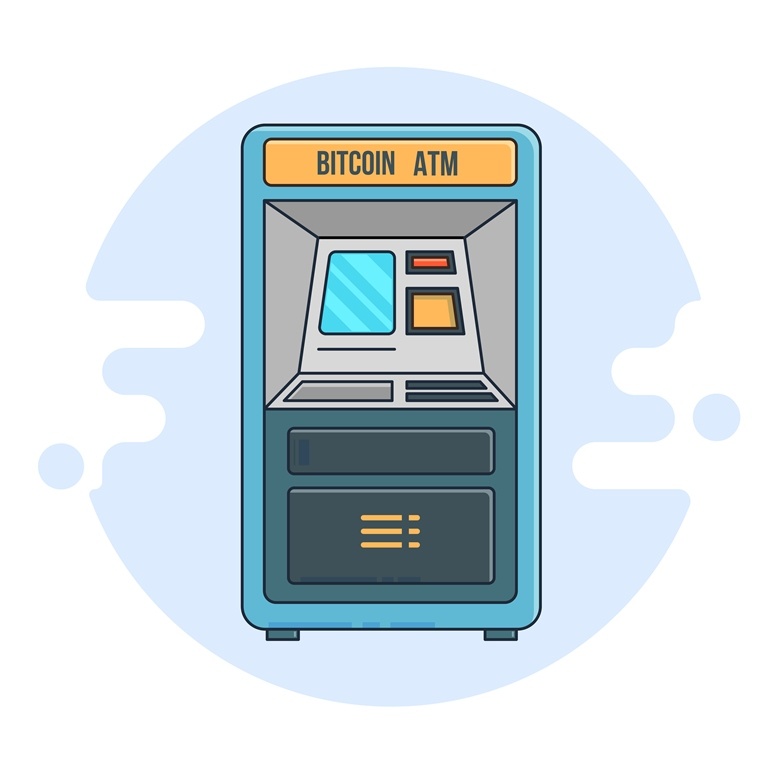
Another option is to use a Bitcoin ATM. This machine allows users to buy and sell bitcoin for a fee. People utilize this machine because it accepts cash for bitcoin, provides anonymity, and overrides the long authentication processes found in conventional exchanges. However, the inaccessibility of these machines remains their core limitation. You might find that there are no Bitcoin ATMs around your location.
Additionally, you could buy from individuals, which is not advisable for the sake of the obvious – cash transactions are risky.
Frequently Asked Questions About Buying Bitcoin
I’ve noticed that many newcomers have similar questions when they start exploring Bitcoin. Let’s go through some of the most common ones together.
How Do Beginners Buy Bitcoin?
Buying Bitcoin for the first time might seem intimidating, but it’s actually quite straightforward. Here’s how you can get started:
- Choose a Reputable Exchange: Start by selecting a user-friendly cryptocurrency exchange. Platforms like Coinbase or Kraken are great for beginners because they offer intuitive interfaces and strong security measures.
- Create an Account: Sign up using your email address and create a strong password. Don’t forget to enable two-factor authentication (2FA) for added security—it gives me peace of mind knowing my account has an extra layer of protection.
- Verify Your Identity: To comply with regulations, exchanges require you to complete a Know Your Customer (KYC) process. You’ll need to upload a government-issued ID and sometimes a proof of address. It might seem like a hassle, but it’s there to protect everyone involved.
- Deposit Funds: Link your bank account or debit card to deposit money into your account. Keep an eye on any fees or limits associated with your chosen payment method.
- Buy Bitcoin: Navigate to the Bitcoin trading section, enter the amount you’d like to purchase, and confirm the transaction. Remember, you don’t have to buy a whole Bitcoin—you can purchase a fraction of one.
- Transfer to a Personal Wallet: For added security, consider transferring your Bitcoin to a personal wallet where you control the private keys. This gives you full ownership and control over your investment.
Once you’ve gone through these steps, you’ll be a proud owner of Bitcoin! It might seem like a lot at first, but trust me, it becomes second nature quickly.
What Happens If I Invest $100 in Bitcoin Today?
Investing $100 in Bitcoin is a great way to start. Here’s what could happen:
- You Own a Fraction of Bitcoin: Bitcoin can be divided into eight decimal places. This means you can buy as little or as much as you like. If Bitcoin is priced at $50,000, your $100 would get you 0.002 BTC.
- Potential for Growth: If Bitcoin’s price increases, the value of your investment goes up. For example, if the price rises to $60,000, your 0.002 BTC would be worth about $120.
- Risk of Decrease: On the flip side, if the price drops to $40,000, your investment would be worth around $80. Bitcoin’s price can be volatile, so it’s important to be prepared for ups and downs.
It’s exciting to watch how the market moves, but remember that investing always comes with risks. I suggest keeping a long-term perspective to ride out the market’s fluctuations.
How Much Will I Get If I Put $1 in Bitcoin?
Yes, you can absolutely invest as little as $1 in Bitcoin! Here’s what that looks like:
- Tiny Fraction of Bitcoin: Using the same $50,000 Bitcoin price, your $1 would purchase 0.00002 BTC. It’s a minuscule amount, but it’s a start!
- Learning Opportunity: Investing even a small amount allows you to familiarize yourself with the buying process, how to store Bitcoin, and how transactions work.
- Building a Habit: Starting small can help you build confidence. As you become more comfortable, you might decide to invest more.
While $1 won’t make you rich, it’s a practical way to dip your toes into cryptocurrency without any significant risk.
How Much Should a Beginner Invest in Bitcoin?
Deciding how much to invest can be a tough decision. Here’s some advice based on my own experiences:
- Start with What You Can Afford: Only invest money that you’re comfortable losing. Cryptocurrencies can be unpredictable, so it’s wise to be cautious.
- Consider Starting Small: Many people begin with amounts like $10, $50, or $100. This lets you get a feel for the market without significant financial pressure.
- Regular Investments: You might consider a strategy called dollar-cost averaging, where you invest a fixed amount regularly (e.g., $10 per week). This can help smooth out the effects of market volatility.
- Educate Yourself: The more you know, the better decisions you can make. Take time to learn about Bitcoin, blockchain technology, and market trends.
- Set Clear Goals: Are you investing for the short term or looking to hold for years? Understanding your goals can help you determine the right amount to invest.
Conclusion
Having read this comprehensive guide on how to buy bitcoin for beginners, there is enough reason to believe that you are ready to own your first bitcoin. Remember, credibility is the watchword in the crypto space. Therefore, ensure that you do thorough research on the quality of services each platform is offering. That said, as you take your first step into the bitcoin market, do not forget to stay safe.
